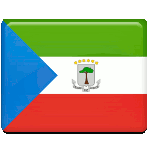Holidays Calendar for June 5, 2018
June 5 is Constitution Day in Denmark. This holiday is not much observed, as in other countries. The shops and other institutions are usually closed and people enjoy warm weather and listen to political debates and speeches on the state of the government.
Equatorial Guinea annually celebrates President's Day on June 5. This holiday was established to commemorate birthday of current President of Equatorial Guinea Teodoro Obiang Nguema Mbasogo.
The 1963 Khordad movement was a very important event in the history of Iran. It rose as a protest against Ayatollah Ruhollah Khomeini imprisonment and lasted for 2 days. Nowadays Iran annually observes Khordad Movement Anniversary (15 Khordad) on June 5.
The 21st day of the Islamic month of Ramadan is the day of death of Imam Ali, the cousin and son-in-law of prophet Muhammad. This day is highly honored in Iran and it's observed as Martyrdom of Imam Ali.
World Day Against Speciesism is an annual observance held on June 5. Initiated by animal rights advocates, its main goal is to remind people that speciesism, like racism or sexism, has no place in a civilized society.
Aromantic Spectrum Visibility Day, also known as simply Aromantic Visibility Day, is observed twice a year, on June 5 and August 25. It was created to promote the visibility of people on the aromantic spectrum and the issues they face, both outside and within the LGBTQIA+ community.
Ecologist's Day is a Russian professional holiday, that annually falls on June 5. This holiday was established by Presidential Decree in 2007. It's annually observed on the same day as World Environment Day.
June 5 is Ameliorator's Day in Azerbaijan. This professional holiday was established by Presidential Decree on May 24, 2007.
June 5 is Ecologist's Day in Kazakhstan. This is an official professional holiday of those Kazakhs, who dedicated their lives to protection and reservation of unique Kazakhstan's nature.
Hydrometeorologist Day, also known as Hydrometeorological Service Employees Day, is an official professional holiday in Tajikistan. It is celebrated annually on June 5, coinciding with the UN World Environment Day.
June 5 is Environment Protection Day in Belarus. This observance was established by Presidential Decree and its date coincides with observance of World Environment Day, established by the UN in 1972.
Arbor Day is celebrated in New Zealand annually on June 5. This observation can boast a long history in New Zealand, however the tree planting activities never brought widespread public attention.
June 5 is Indian Arrival Day in Suriname. This national holiday celebrates the arrival of East Indian immigrants in 1873.
Most people are familiar with gingerbread house, that is a typical Christmas dish. But gingerbread can come in number of different shapes and forms. June 5 is National Gingerbread Day, that is celebrated by people across the country.
National Veggie Burger Day is celebrated annually on June 5. It was created to show people that meatless burgers can be just as delicious as their traditional meat counterparts and to encourage everyone to give veggie burgers a try even if they aren’t planning to adopt a vegetarian or vegan lifestyle anytime soon.
Sausage Roll Day, sometimes referred to as National Sausage Roll Day, is observed annually on June 5. It celebrates a delicious savory pastry dish that is typically associated with British cuisine but is popular all over the world.
June 5 is World Environment Day. This observance was established by the United Nations General Assembly in 1972, the first celebration took place in 1973.
The International Day for the Fight Against Illegal, Unreported and Unregulated Fishing is a United Nations observance held on June 5 every year. Its main objective is to raise public awareness about the importance of sustainable development and fishing.
The Danish fathers annually celebrate Father's Day on June 5. This holiday was adopted from the American tradition and nowadays it's very popular in Denmark.
HIV Long-Term Survivors Awareness Day is observed annually on June 5. It was created to celebrate the resilience and strength of people living with HIV for decades while highlighting their needs, issues and challenges.
Festivals for June 5, 2018
- Stockholm Early Music Festival in Stockholm, Sweden
- Apple Worldwide Developers Conference (WWDC) in San Jose, USA
- British Urban Film Festival in London, United Kingdom
- Animafest Zagreb in Zagreb, Croatia
- Burning Nest in Exeter, United Kingdom
- Kinotavr Film Festival in Sochi, Russia
- Highland Renaissance Festival in Eminence, USA
- 3 Barons Renaissance Faire in Anchorage, USA
- Festspiele Zürich in Zurich, Switzerland
- Odesa Classics in Odesa, Ukraine
- Beat Film Festival in Moscow, Russia
- Encounters South African International Documentary Festival in Johannesburg, South Africa
- Encounters South African International Documentary Festival in Cape Town, South Africa
- Cincinnati Fringe Festival (Cincy Fringe) in Cincinnati, USA
- London Fringe Theater Festival in London (ON), Canada
This Day in History
- 2022 A constitutional referendum was held in Kazakhstan following violent civil unrest in early January caused by worsening economic conditions and subsequent calls for rapid political reform.
- 2015 Died: Jerry Collins, New Zealand rugby player. He retired from international rugby after winning the 2007 Rugby World Cup and died at the age of 34 after his car collided with a bus.
- 2012 Died: Ray Bradbury, American science fiction, fantasy, mystery fiction and horror fiction writer. His best known works include Fahrenheit 451 and The Martian Chronicles.
- 2004 Died: Ronald Reagan, American actor, politician and statesman who served as the 40th President of the United States from 1981 to 1989.
- 2002 Died: Dee Dee Ramone, German-American musician and songwriter best known as the founder of the punk rock band The Ramones.
- 2000 The Six-Day War began in Kisagani, the Democratic Republic of the Congo. It was a series of armed confrontations between Rwandan and Ugandan forces.
- 1998 Born: Yulia Lipnitskaya, retired Russian competitive figure skater. She was part of the Russian team that won the 2014 Winter Olympics team trophy.
- 1995 Born: Troye Sivan, Australian singer-songwriter and actor. His acting credits include X-Men Origins: Wolverine, the Spud film trilogy, Boy Erased, Three Months, and The Idol.
- 1984 Born: Cécilia Cara, French actress and singer best known for her role as Juliet in the French musical Roméo et Juliette: de la Haine à l'Amour.
- 1981 The Morbidity and Mortality Weekly Report published by the CDC reported of five cases of a rare form of pneumonia. These were the first recognized cases of AIDS.
- 1978 Born: Nick Kroll, American actor, voice actor, comedian, writer, and producer. He is known for creating and starring in the series Kroll Show, The Oh, Hello Show, and more.
- 1977 Born: Liza Weil, American actress best known for her starring role as Paris Geller in the comedy-drama series Gilmore Girls and its revival series Gilmore Girls: A Year in the Life,
- 1977 A coup d'état took place in Seychelles. The leader of the opposition France-Albert René seized power and made Seychelles a one-party state.
- 1975 Died: Paul Keres, Estonian chess grandmaster and chess writer. He was nicknamed "The Eternal Second" and "The Crown Prince of Chess".
- 1971 Born: Mark Wahlberg, American actor. His film credits include Boogie Nights, The Perfect Storm, Planet of the Apes, The Departed, the Transformers film franchise, and more.
- 1968 Robert F. Kennedy, U. S. Senator from New York and presidential candidate, was shot in Los Angeles, California. He died the next day.
- 1967 The Six-Day War between Israel and the neighboring states of Egypt, Jordan, and Syria began. Israel started the war with a preemptive air attack.
- 1964 Born: Rick Riordan, American author primarily known for his Percy Jackson & the Olympians series, a pentalogy of young adult fiction books.
- 1952 Born: Nicko McBrain, English drummer and percussionist best known as the drummer for the heavy metal band Iron Maiden, which he joined in 1982.
- 1947 The United States Secretary of State George Marshall voiced his plan of rebuilding European economics in a speech at Harvard University.
- 1941 Born: Robert Kraft, American business magnate. He is best known as the founder, chairman and CEO of The Kraft Group (founded in 1998).
- 1940 Operation Fall Rot (Case Red) began during the Second World War. It was the second phase of the conquest of France by Wermacht (the German Army).
- 1939 Born: Joe Clark, Canadian statesman, politician, businessman, journalist, and writer. He served as Prime Minister of Canada in 1979-1980.
- 1910 Died: O. Henry (pen name of William Sydney Porter), American short story writer. His stories are known for their wit, wordplay and surprise endings.
- 1900 Died: Stephen Crane, American writer who is considered to be one of the most innovative authors of his generation. He died at the age of 28.
- 1900 Born: Dennis Gabor, Hungarian-British physicist and electrical engineer who was awarded the 1971 Nobel Prize in Physics for his invention of holography.
- 1898 Born: Federico García Lorca, Spanish poet, playwright, and theater director who is primarily remembered as a member of the Generation of '27.
- 1898 Born: Salvatore Ferragamo, Italian shoe designer who worked for many Hollywood stars. He founded his own luxury goods company in 1928.
- 1883 The first regularly scheduled Express d'Orient, a long-distance passenger train, left Paris for Vienna. The train was officially renamed the Orient Express in 1891.
- 1883 Born: John Maynard Keynes, British economist whose ideas significantly influenced both the theory and practice of modern macroeconomics.
- 1866 Died: John McDouall Stuart, Scottish explorer who led the first successful expedition to traverse the Australian mainland from south to north and return.
- 1849 The Constitution of Denmark was signed by King Frederick VII. It put an end to absolute monarchy and made Denmark a constitutional monarchy.
- 1832 The June Rebellion began in Paris. This anti-monarchist insurrection of Parisian republicans was described by Victor Hugo in his novel Les Misérables.
- 1826 Died: Carl Maria von Weber, German composer, conductor, musician and music critic, one of the first significant Romantic-era composers.
- 1816 Died: Giovanni Paisiello, Italian composer of the Classical era. He was mainly an opera composer, but his works also include cantatas, oratorios etc.
- 1316 Died: Louis X of France, monarch of the House of Capet who ruled as King of Navarre and Count of Champagne and as King of France.



















